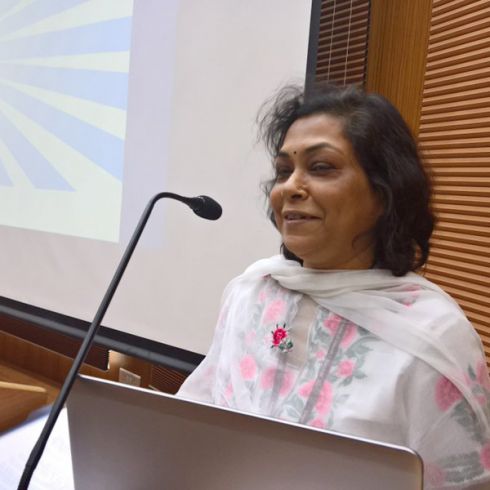
MUMBAI: At the recently held Radio Festival, Joint Secretary Government of India Ministry of Information and Broadcasting Anju Nigam spoke about the importance of radio and why it still remains one of the most easily accessible, cheap medium and the key role it plays in connecting various communities in the country through community radio. She also gave a diplomatic answer on news (political) news not being allowed to be broadcasted in an unchanged format on private FMs.
On being asked during the panel that the government has already allowed news on FM radio, but why is it not allowing private news in its own form, she exclaimed, “That’s a debatable question. I would not like to comment on that. The government has to weigh the pros and cons of any decision that is taken. So, this decision has a lot of pros and lots of cons. So, one has to have a balance.”
On being further questioned at the panel, if one can accuse the government of deliberating sabotaging radio by not allowing a lively current affair discussion on topics of the day, she continued, “Discussions and talks shows are allowed, it's only the news that isn’t allowed."
There is no political content allowed on Private FMs. On being quizzed on this, she added, “This is as per the broadcast policy, which AIR itself has to follow, which is the broadcasting of the government programming code.”
Further, on being asked if we will be seeing any changes when it comes to the broadcasting of private news in an unchanged form, she concluded, “It’s too early to comment about that. In 18 years, we have already given permission to broadcast All India Radio news that has come out recently. So, let’s see, which way it goes in future.”
She also stressed on the rise in the number of Private FM stations in the country. She was a part of the panel that had RED FM COO Nisha Narayanan, MY FM Business Head Rahul Namjoshi, BIG FM CFO Asheesh Chatterjee on board.
“Whether it is Private FM or All India Radio (AIR) public broadcaster, it is highly in demand. As far as Private FM content is concerned, the government started in 2001 with a small contingent of 21 FM stations in 2001. And now the number of stations is more than 300. So, this has been the rate of expansion and has become so popular because there is a demand to have more channels in more number of cities. The FM has expanded to 102 cities from a small beginning of 12 cities.”
"So, be it youngsters, oldies as well as middle-aged people, all are hooked on to the radio because it’s a very popular, cheap medium. It doesn’t require high technology, which other media do because the internet is not available to the common masses. So, even those labourers, who are fed up and involved with their work, are able to listen to music. The housewives too put up the transistor to get some entertainment through music while cooking,” she added on the popularity and affordability of radio in India.
Further speaking on radio as a medium, she said, “Radio is a powerful medium, which is portable, dynamic and will never lose its importance. Even though the content varies from genre to genre, now the cities provide various opportunities and with FM, local talents can be exploited.”
Anju Nigam also shed light on community radio and its importance. She said, “There is another stream of radio i.e. community radio, which really thrives on local talent. Many times, it gives voice to the voiceless, the local talent, local culture and the local dialect, which is so popular in the community radios that some of the community radio shows became so popular that they became global shows.”